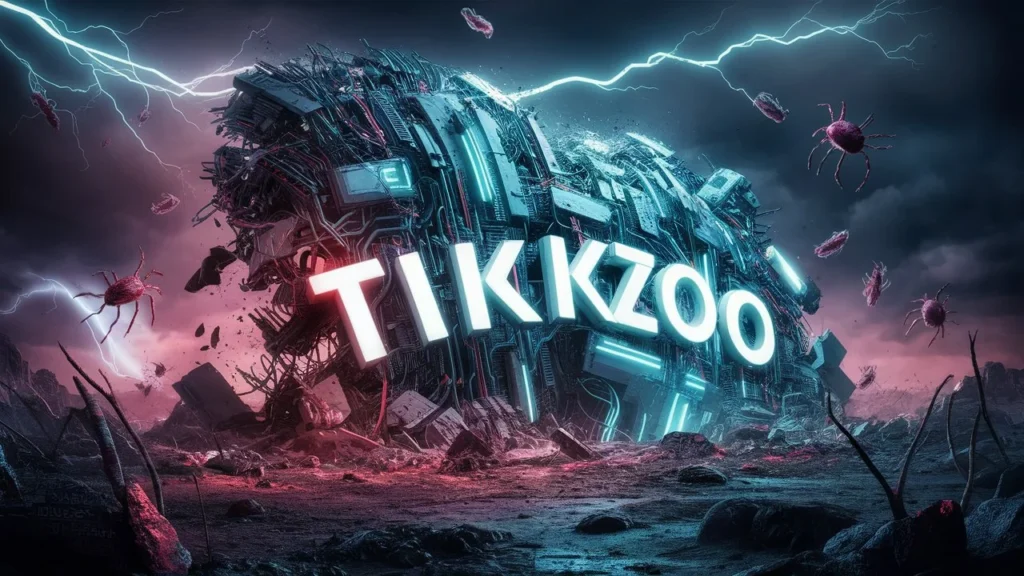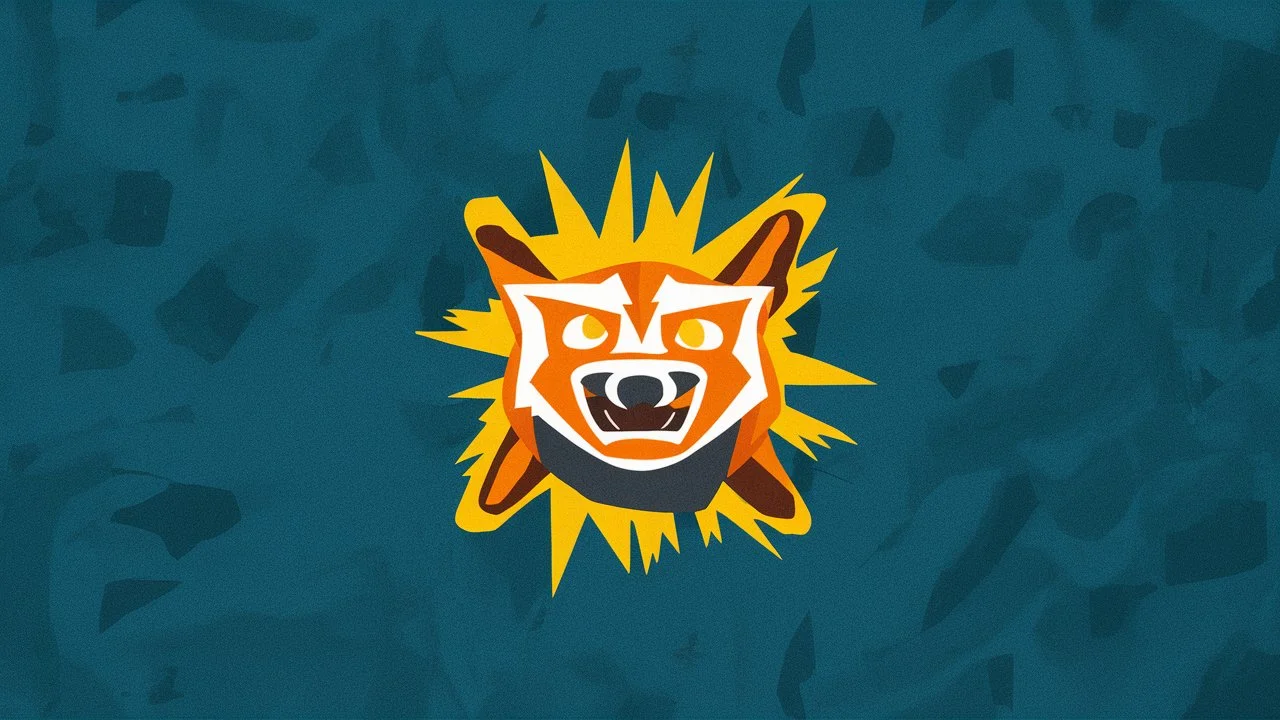TickZoo uses algorithms to find and collect videos that are publicly available on other websites.
In the ever-evolving landscape of the internet, few stories have captured the attention of digital denizens, quite like the rise and fall of Tickzoo. Once a bustling hub of user-generated content, this online platform became embroiled in controversy before its eventual collapse.
Today, we’ll dive deep into the Tickzoo saga, , Zoofilia tickzoo, exploring its origins, controversies, and lasting impact on online freedom and regulation discussions.
The Rise of Tickzoo
Origins and Founding
Tickzoo burst onto the digital scene in the mid-2010s, presenting itself as a revolutionary content-sharing platform. Founded by a group of tech entrepreneurs, including the now-infamous Eddie Kurland, Tickzoo promised a space where creativity could flourish without the constraints often imposed by mainstream social media sites. With the launch of Tickzoo TV, the platform expanded its reach, offering users a unique way to consume and share video content, further solidifying its place in the digital landscape.
Initial Concept and Purpose
At its core, Tickzoo aimed to be a haven for free expression. The platform’s “Unleash Your Inner Creator” tagline resonated with many who felt stifled by content policies on other sites. Tickzoo’s unique selling points include:
- Minimal content moderation
- Anonymous posting options
- A robust recommendation algorithm
- Monetization opportunities for creators
Early Growth and User Adoption
Tickzoo’s user base proliferated, attracting content creators from various niches. By its second year, the platform boasted:
| Metric | Number |
| Monthly Active Users | 50 million |
| Daily Content Uploads | 2 million |
| Registered Creators | 5 million |
This explosive growth caught the attention of investors, leading to a Series B funding round that valued Tickzoo at $1.2 billion.
Tickzoo’s Controversial Content
As Tickzoo’s popularity soared, so did concerns about the nature of content being shared on the platform.

Types of Content Hosted
Tickzoo became known for hosting a wide range of content, including:
- Comedy sketches and memes
- Political commentary
- Amateur music and art
- Lifestyle vlogs
- Educational content
- Adult-oriented material, including Tickzoo porn
- Conspiracy theories
The last two categories would ultimately lead to Tickzoo’s downfall.
Legal Gray Areas
Tickzoo’s hands-off approach to moderation meant that content often pushed the boundaries of legality. Issues arose around:
- Copyright infringement
- Defamation
- Privacy violations
- Potential exploitation of minors
- tickzoo vpn detected
The platform’s leadership often cited Section 230 of the Communications Decency Act as a shield, arguing that they were not responsible for user-generated content.
Ethical Concerns Raised by Critics
Critics of Tickzoo pointed to several ethical issues:
- The spread of misinformation
- Potential radicalization of users through algorithmic recommendations
- Lack of age verification for adult content
- Insufficient protections for vulnerable users
These concerns would eventually catch the attention of lawmakers and regulators.
The Eddie Kurland Connection
All discussion of Tickzoo is complete with examining the role of its charismatic and controversial co-founder, Eddie Kurland.
Kurland’s Role in Tickzoo
Eddie Kurland served as Tickzoo’s CEO and public face. Known for his libertarian views on internet freedom, Kurland often made headlines with his staunch defense of the platform’s policies.
Public Statements and Actions
Kurland’s public persona was marked by provocative statements, including:
“We’re not in the business of policing thought. Tickzoo is the last bastion of true online freedom.”
“If you don’t like what you see on Tickzoo, don’t look. It’s that simple.”
These statements often inflamed public opinion and put Tickzoo under increased scrutiny.
Impact on Tickzoo’s Reputation
Kurland’s unapologetic stance had a polarizing effect:
- Supporters viewed him as a champion of free speech
- Critics saw him as reckless and irresponsible
- Investors became increasingly wary of the platform’s direction
As controversies mounted, Kurland’s leadership became a liability for Tickzoo.
The Collapse of Tickzoo
Tickzoo’s fall was as swift as its rise, triggered by a series of events that exposed the platform’s vulnerabilities.

Key Events Leading to Shutdown
- Government Investigation: In late 2019, the FBI investigated Tickzoo over allegations that it hosted illegal content.
- Advertiser Exodus: Major brands pulled their ads from the platform, citing safety concerns.
- App Store Removal: Both Apple and Google removed the Tickzoo app from their stores, citing violations of their policies.
- Whistleblower Revelations: A former Tickzoo employee leaked documents showing the company’s awareness of problematic content.
Legal Challenges Faced
Tickzoo found itself battling on multiple legal fronts:
- Class-action lawsuits from users claiming harm
- Copyright infringement cases from major media companies
- Criminal investigations in various countries
The mounting legal costs quickly drained Tickzoo’s financial resources.
Technical Issues and Security Breaches
Amidst the legal turmoil, Tickzoo also faced technical challenges:
- A major data breach exposed user information
- DDoS attacks crippled the site’s infrastructure
- Content moderation AI failed to keep pace with uploads
These issues eroded user trust and made the platform increasingly unstable.
Impact on Users and the Online Community
The collapse of Tickzoo down sent shockwaves through the online world, affecting millions of users and content creators.
Displacement of Tickzoo’s User Base
When Tickzoo went offline in early 2020, its user base scattered across the internet. This digital diaspora led to:
- The creation of numerous sites like Tickzoo.
- An influx of users to existing platforms like Reddit and Twitter
- The formation of decentralized content-sharing networks
Reactions from Content Creators
Tickzoo’s demise hit content creators particularly hard:
- Many lost their primary source of income
- Years of content became inaccessible
- Some creators faced real-world consequences for their Tickzoo activities
Ripple Effects in Similar Online Spaces
The Tickzoo down had far-reaching consequences for the broader online ecosystem:
- Increased scrutiny of content policies on other platforms
- A renewed debate on the limits of online free speech
- More aggressive content moderation by social media companies
- Growing calls for regulation of user-generated content sites
Tickzoo’s Legacy in the Digital Landscape
While Tickzoo is gone, its impact continues to shape the online world.
Changes in Content Moderation Policies
In the wake of Tickzoo’s collapse, many platforms overhauled their approach to content moderation:
- Implementation of stricter community guidelines
- Investment in advanced AI moderation tools
- Increased transparency in content removal processes
- Creation of external oversight boards
Shift in User Expectations for Privacy and Security
The Tickzoo saga heightened user awareness of online privacy and security issues:
- Demand for end-to-end encryption in messaging apps surged
- Users became more cautious about sharing personal information online
- Interest in decentralized and blockchain-based platforms increased
Influence on Subsequent Platforms
New platforms emerging post-Tickzoo have had to navigate a changed landscape:
- Greater emphasis on user safety: Platforms now prioritize user protection features from the outset.
- Balancing act: More work must be done to balance free expression with responsible content management.
- Regulatory compliance: New startups must consider potential regulatory hurdles from day one.
Legal and Ethical Implications
The Tickzoo case has become a touchstone in Internet law and ethics discussions.
Precedents Set by Tickzoo Case
Several legal precedents emerged from the Tickzoo fallout:
- Expanded interpretation of platform liability
- Stricter enforcement of age verification requirements
- New standards for content recommendation algorithms
Debates on Online Freedom vs. Regulation
The Tickzoo controversy reignited debates on fundamental internet issues:
- The limits of free speech in digital spaces
- The role of government in regulating online platforms
- The responsibility of tech companies in moderating user content
International Variations in Approach
Different countries have taken varied approaches in response to the Tickzoo case:
| Country | Regulatory Response |
| USA | Proposed amendments to Section 230 |
| EU | Introduced Digital Services Act |
| China | Tightened control over social media |
| India | Implemented new IT rules for platforms |
The Future of Online Platforms Post-Tickzoo
The online world continues to evolve as the dust settles on the Tickzoo saga.
Emerging Trends in Content Sharing
Several trends have emerged in the post-Tickzoo era:
- Niche Platforms: More specialized content-sharing sites catering to specific interests
- Decentralized Networks: Blockchain-based platforms offering censorship resistance
- AI-Powered Moderation: Advanced algorithms to catch problematic content early
- User Empowerment: Tools allowing users greater control over their content feeds
New Focus on User Protections
Platforms are now emphasizing user safety more than ever:
- Improved reporting mechanisms for harmful content
- Mental health resources integrated into social platforms
- More excellent controls for parents and guardians
- Real-time content analysis to prevent the spread of misinformation
Balancing Freedom and Responsibility Online
The challenge moving forward is to create online spaces that foster creativity and expression while maintaining safety and ethical standards. This balancing act involves:
- Collaborative efforts between tech companies, regulators, and user advocacy groups
- Ongoing research into the societal impacts of social media
- Education initiatives to promote digital literacy and responsible online behavior
Conclusion
The story of Tickzoo serves as a cautionary tale in the annals of internet history. Its rapid rise and spectacular fall highlight online platforms’ complex challenges in the 21st century. As we move forward, the lessons learned from Tickzoo continue to inform discussions on digital rights, online safety, and the future of the internet.
The legacy of Tickzoo reminds us that with great freedom comes great responsibility. As users, creators, and citizens of the digital world, we must remain vigilant and engaged in shaping our online spaces. The internet’s potential for innovation and connection is vast, but so are the risks when that potential is mismanaged.
Ultimately, the Tickzoo saga is not just about one platform’s failure but our collective journey in navigating the digital frontier. It challenges us to think critically about the online world we want to create and the values we wish to uphold in our increasingly interconnected global community.

Matthew Porter is the innovative mind behind Insuranted.com, a website dedicated to providing clear, comprehensive, and reliable information on insurance. With a passion for simplifying complex topics, Matthew aims to empower readers to make informed decisions about their insurance needs










